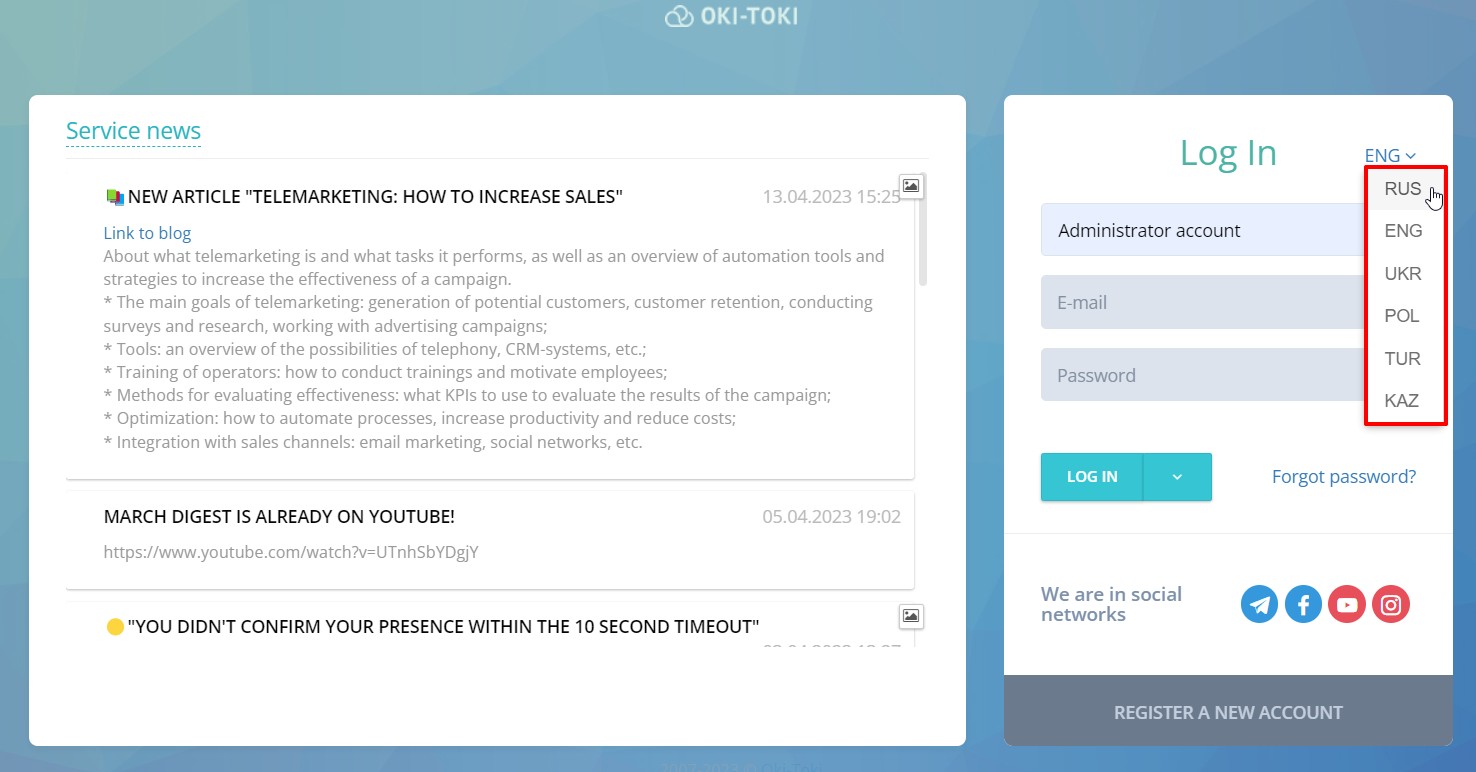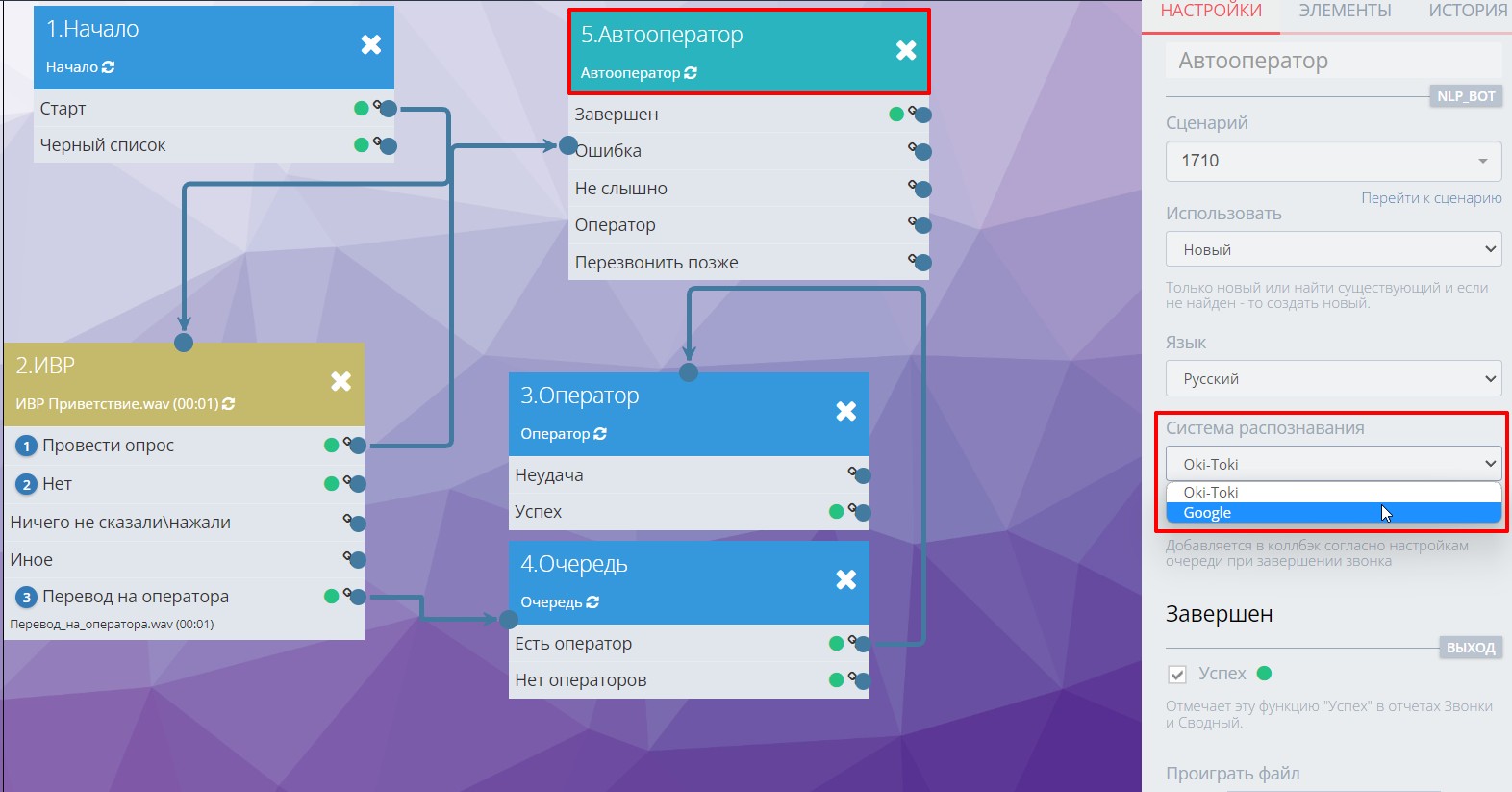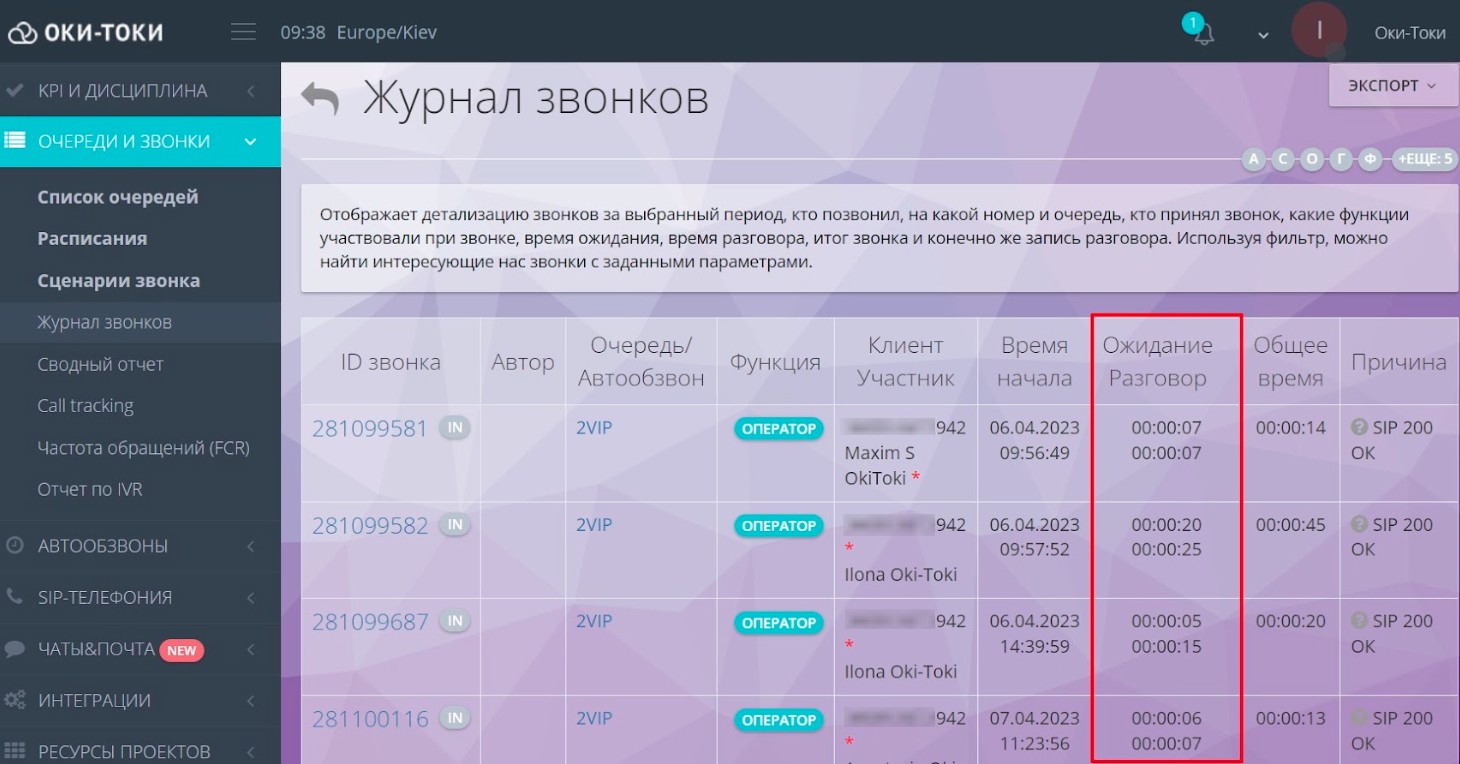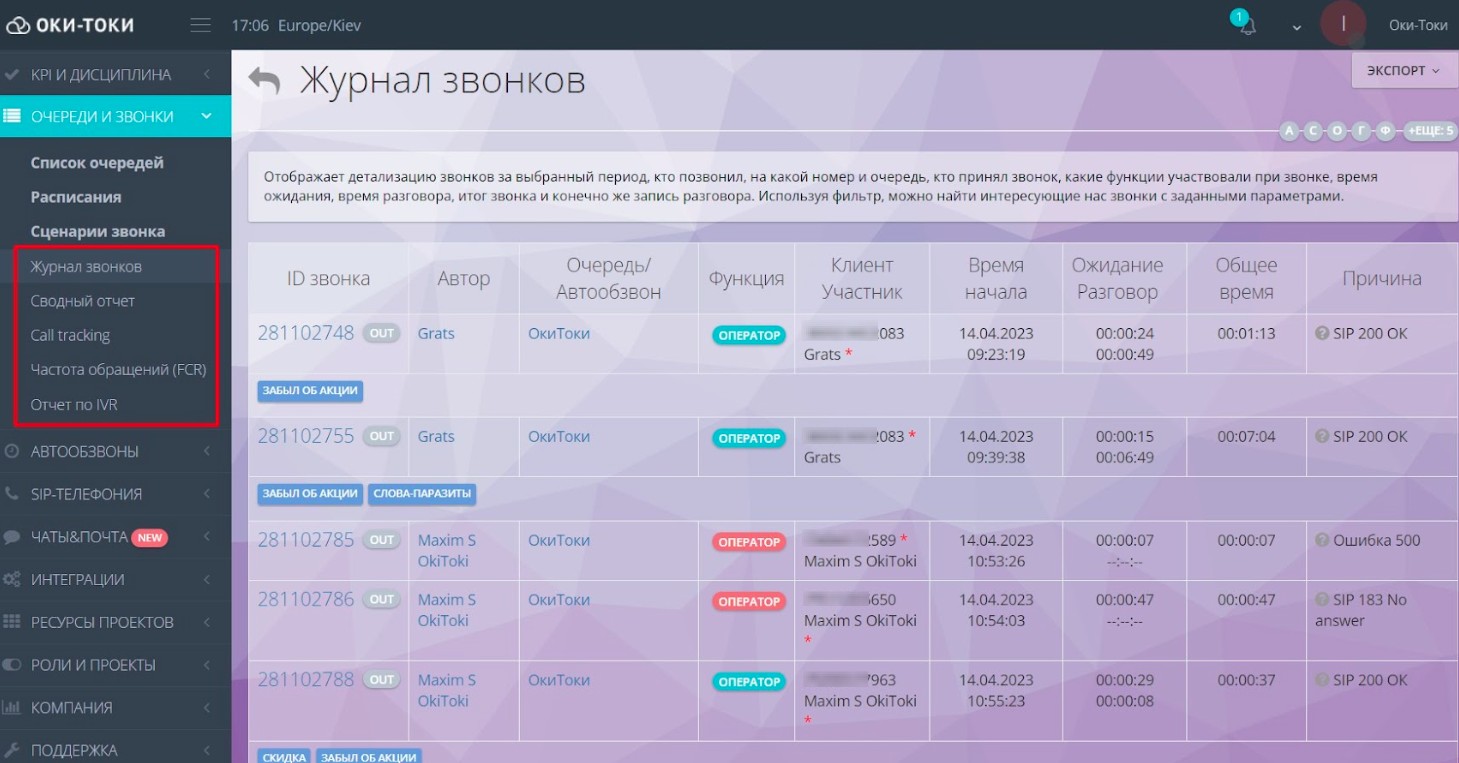Content
1. What is an outsourcing contact center: definition, functions and working specifics
2. Differences between an outsourcing contact center and a call center: how to choose the optimal option
3. Advantages of using an outsourcing contact center for business
4. Main types of services provided by an outsourcing contact center
5. How to choose an outsourcing contact center for your company: selection criteria and quality assessment
6.Differences between internal and outsourced contact center: which option is better for your business?
h5>7. How an outsourced contact center can help business reduce staff costs
h5>9. How an outsourcing contact center can help companies reduce customer churn
h5>10. What requirements should be made to the staff of an outsourcing contact center
11. How an outsourced contact center can help companies reduce response time to customer requests and improve problem resolution time
12. Conclusion
What is an outsourced contact center: definition, functions and specifics of work
An outsourced contact center is a company that provides call and contact processing services on behalf of its clients. It can be located both within the client’s country and beyond its borders. In this case, we are talking about outsourcing contact center services, that is, transferring them to outsourcing by a third party company.
The functions of the outsourced contact center include:
- call reception;
- processing of requests and complaints;
- customer support;
- sales and marketing campaigns;
- internet resource service;
- call and traffic management.
Typically, an outsourced call center specializes in handling incoming and outgoing calls, reducing the load on the sales department and customer service, as well as increasing the number of processed calls.
The particularities of outsourcing call center operations:
- implementation of advanced technologies that enhance work efficiency;
- flexibility in dealing with customers, taking into account their needs and wishes;
- Availability of qualified staff specializing in call handling and customer interaction;
- a high level of service and professional work attitude;
- scalability of operations and the ability to increase the number of processed calls.
One of the main advantages of an outsourcing contact center is the saving on equipment and staff training costs, as the client company incurs only the costs of handling calls and contacts. In addition, an outsourced contact center typically has extensive experience dealing with different types of clients, enabling it to provide higher quality services.
Of course, the choice of an outsourcing contact center depends on a number of factors, such as the size and needs of the company, budget, service level requirements, business specificity, and others. However, if the chosen contact center meets all requirements, it can significantly improve the quality of customer service, reduce the load on the sales department, and increase the number of handled calls, ultimately enhancing the business efficiency of the client company.
It’s also important to remember that for successful collaboration with an outsourcing contact center, clear and timely communication is essential. Clear goals and expectations from the service should be set, along with regular quality monitoring of service delivery and interactions with clients.
Differences Between Outsourcing Contact Centers and Call Centers: How to Choose the Optimal Option
When it comes to the choice between an outsourcing contact center and a call center, many businesses face the challenge of determining the most suitable option. Both types of centers offer services in call handling and customer base management, but each has distinctive features that can influence your choice.
To assist you in making the right decision, we will examine the main differences between outsourcing contact centers and call centers, as well as provide practical advice on choosing the best option for your business.
- Main Functions
A call center primarily focuses on handling incoming and outgoing calls. It can provide services such as customer support, order processing, conducting marketing research, as well as collecting data and calling potential customers.
In addition to these services, an outsourcing contact center, calls, it can provide email processing services, social networks, chat and SMS. It specializes in managing customer communications across all channels.

- Technical support
The call center can provide technical support to customers within its competence, but in general it does not specialize in this area .
An outsourcing contact center can provide highly qualified technical support, which is the main advantage of its use for businesses operating in the IT sector or in other industries, where qualified technical assistance is needed.
- Training and quality of service
Call centers are usually trained using specific scripts for communicating with clients, which allows them to quickly train new employees and ensure standardization of service quality. However, this can lead to a lack of individual approach to clients, which negatively affects the level of customer satisfaction.
Outsourcing contact centers, in turn, usually train their employees on the principles of providing high-quality service and developing an individual approach to each client. This may take more time and resources, but often results in better results and increased customer loyalty.
- Prices
Call centers usually offer lower prices for their services than outsourced contact centers. However, it is worth considering that price may not be the only criterion when choosing a provider.
Outsourcing contact centers can provide additional services, such as social media management or email processing, which may increase the cost of their services. In addition, the price may depend on the level of qualifications of employees, quality of service and other factors.
- Geographical location
Call centers are usually located within the country, which can be an important factor for businesses that want to retain national talent and provide quality service locally.
Outsourcing contact centers can be located both within the country and abroad, which reduces maintenance costs, but can lead to difficulties in organizing work and communication with the provider.

In conclusion, the choice between an outsourced contact center and a call center should be based on the specific needs of your business and its goals. By considering all the differences between it and a call center, as well as taking into account the characteristics of your industry and customer requirements, you can determine the optimal provider option.
If you are looking for provider with IT or technical support experience, an outsourced contact center may be the best choice. If you are looking for a cheaper option for processing calls and managing your customer base, then a call center may be more suitable for you.
However, it is worth remembering that Choosing the right provider can increase customer satisfaction, improve service quality, and ultimately lead to growth for your business. Therefore, it is important to carefully evaluate all factors before making a final decision.
Benefits of using an outsourced contact center for business
Contact center outsourcing is becoming increasingly popular among companies that want to optimize their business processes. In this section, we will look at several benefits that companies can gain by using outsourced contact center services.
- Reduced customer service costs
The use of outsourcing contact center services allows companies to reduce the cost of customer service. Instead of maintaining an in-house contact center department, companies can outsource these functions and pay only for the services actually rendered. This allows you to reduce costs for employee salaries, equipment, software, premises rental and other expenses.
- Increasing availability for clients
Outsourcing contact centers are working 24/7, which allows clients to communicate with company representatives at any time of the day or night. This increases accessibility and convenience for customers, which can improve the overall quality of service.
- Improving the quality of service
Companies that specialize in contact center outsourcing can provide a higher level of service than companies that do not have a dedicated contact center. Outsourcing contact center employees undergo special training, have more experience and competencies in the field of customer service.
- Expanding geographical coverage
- Increasing call processing speed
- Flexibility and scalability
- Increasing marketing efficiency
Outsourcing contact centers can not only serve customers, but also perform marketing functions. They can collect customer data, analyze customer behavior and preferences, and conduct market research. This helps companies improve their marketing strategy and increase the effectiveness of their campaigns.
Using outsourced contact center services can help companies reduce customer service costs, increase availability and quality of service, expand geographic coverage, speed up call processing, increase business flexibility and scalability, and increase marketing efficiency. This can lead to increased profits and improved company reputation in the eyes of clients.
Main types of services provided by an outsourcing contact center
An outsourced contact center provides a wide range of customer service services, including both traditional operations and new digital communication channels. The following are the main types of services that can be provided by an outsourcing contact center:
- Incoming calls: An outsourced contact center can receive incoming calls from customers and process their requests. Contact center operators can provide technical support, consulting services, process orders, and solve problems related to products and services.
- Outbound calls:An outsourced contact center can also handle outbound calls for marketing, sales, and customer support. This could include calls for customer satisfaction surveys, offers for new products and services, and notifications of changes to contract terms.
- Email and Chat:An outsourced contact center can provide email and chat handling services to customers. This may include answering questions, assisting with ordering, and supporting technical issues.
- Social media management :A contact center can help a company manage its social media profiles, resolve customer problems and answer their questions.
- Order Processing:An outsourced contact center can process orders from customers and monitor their completion. Operators can help customers place orders, change or cancel orders, and answer questions about order status.
- Technical support: The Contact Center can provide technical support to customers, helping them resolve problems with products or services. This may include both remote support and customer training.
- Analytics and reporting: An outsourced contact center can provide analytics and reporting services that help clients understand their business processes and make management decisions. This may include analyzing customer and product data, analyzing service quality, and monitoring the performance of contact center agents.

- Multilingual support: An outsourced contact center can provide services in several languages, which allows companies to serve customers in different regions and countries. Operators can speak the client’s language and provide a high level of service in accordance with the client’s cultural characteristics.
- Training agents:An outsourced contact center can provide training to contact center agents so that they can provide quality, professional customer support. This may include technical skills training, sales training, conflict management training, etc.
- Automation and process optimization:An outsourced contact center can help companies automate and streamline their processes, thereby increasing efficiency and reducing costs. This may include automatic call routing, automatic speech recognition, problem solving using artificial intelligence, and much more.

- Customer Relationship Management (CRM): An outsourced contact center can help companies manage customer relationships using specialized customer relationship management systems (CRM). Operators can monitor customer communication history, manage requests and complaints, and improve customer interactions.
Each outsourced contact center can offer its own unique set of services depending on the client’s needs. Companies can choose specific services or packages that suit their business needs and budget. It is important to choose a reliable partner who can provide quality service and improve the customer experience.
For example, one of the tasks of a contact center may be to optimize customer waiting time in queue to call. To achieve this, operators can use analytics to identify peak hours and find ways to reduce wait times. The contact center can also provide customers with the opportunity to leave a call back or send a request via email or chat.

Another example would be customer relationship management through a CRM system. The contact center can help customers with service or product queries and use this data to improve future customer interactions.
Finally, the contact center can provide services for monitoring social networks and timely response to customer complaints or problems, which will help maintain a positive image of the company.
In general, an outsourcing contact center can provide comprehensive services to improve customer experience and increase customer satisfaction. Choosing the right contact center can make a significant difference to the success of a business, so it is important to use trusted and quality service providers.
How to choose an outsourced contact-center for your companies: selection criteria and quality assessment
An outsourcing contact center is an important element of a successful business. It provides an opportunity for companies to focus on their core business, leaving routine customer service tasks to professionals. However, choosing the right contact center can be a daunting task. In this block we will look at the criteria for choosing an outsourcing contact center and methods for assessing its quality.
- Geography
The first and very important criterion is the location of the contact center. The contact center should be located in a place where there is a sufficiently high qualification of staff, access to qualified personnel and a low cost of living. This will provide the company with access to highly qualified employees who will be able to serve customers at the highest level, while reducing the cost of maintaining a contact center.
- Employee qualifications
The second criterion is the qualifications of the contact center employees. Employees must be highly qualified and experienced in working with clients. The contact center should provide detailed information about its employees, including their experience and qualifications, and test and train new employees before they start working.
- Technologies
The third criterion is the technologies used by the contact center. The contact center should use modern technologies that provide high quality customer service, as well as efficient and convenient work for employees. Technologies may include agent automation, call management and reporting systems, and integration with other systems.
- Experience
The fourth criterion is contact center experience. The company should research the contact center’s experience, including time in market, experience with customers in the same industry as the customer company, and ratings and reviews from other contact center customers. This will help the company understand how well the contact center is serving its customers and what level of quality can be expected.
- Flexibility
The fifth criterion is the flexibility of the contact center. The contact center must have a flexible tariff system that allows the customer company to choose the desired level of service and not overpay for unused services. In addition, the contact center must be prepared to adapt to changes in the customer company’s business processes, for example, changes in the number of clients or types of service.
- Service level
The sixth criterion is the level of service provided by the contact center. The contact center must have a high level of service and provide feedback to customers. It is also important to ensure that the contact center provides services in multiple languages if the company works with an international customer base.
- Cost
The seventh criterion is the cost of contact center services. The contact center should offer reasonable rates and additional services. It is important to understand that a cheaper contact center may not provide high quality customer service and may not have experience in the industry. It is necessary to evaluate the ratio of price and quality of services.
Assessing the quality of an outsourcing contact center
In addition to the selection criteria, it is equally important to evaluate the quality of services provided by the contact center. The following points will help assess the quality of the contact center:
- Response speed and waiting time
Response speed and waiting time are the main indicators of the quality of contact center work. The contact center must provide quick and efficient response to customer calls and inquiries. Waiting time should be minimal so that customers do not feel irritated and are not distracted from their business.

- Quality of service
The contact center must provide high quality customer service, including audio quality, speech clarity, and politeness and professionalism of agents. In addition, the contact center must be prepared to resolve problems and conflicts related to customer service.
- Operational Effectiveness
The contact center must be efficient in its work and not waste customers’ time on unnecessary actions, such as repeated requests for information or transferring a call between different operators. Also, the contact center must ensure timely and accurate processing of customer data.
- Reporting
The contact center must provide information about the operation and effectiveness of its services. It is important to evaluate the quantity and quality of reports, as well as their completeness and accuracy.

- Feedback
The contact center must provide feedback on the performance and quality of its services. It is important to ensure that the contact center is willing to accept customer feedback and take steps to improve the quality of its services.
Choosing an outsourced contact center can be difficult task. However, the right contact center can significantly improve the quality of customer service and optimize the company’s business processes. Guided by the selection criteria and methods for assessing the quality of the contact center, the company can choose the most suitable partner for its needs.
Differences between in-house and outsourcing Contact Center: Which Option Is Best for Your Business? >
The contact center is a key element for business, which allows you to provide high-quality service to customers and retain them. The differences between an in-house and outsourced contact center are related to how they organize their work and what approach they use to solve problems.
Internal Contact -centeris located within the company and is managed by its employees. This approach allows the company to control the work process and maintain data confidentiality. In addition, an internal contact center can quickly respond to changes in business processes and make appropriate adjustments.
However, an internal contact center requires significant costs for the education and training of personnel, for the purchase of equipment and software, as well as for its maintenance and updating. Additionally, if call volume is low, the internal contact center may become an underutilized resource for the company.
Outsourced Contact Center , on the other hand, is located outside the company and works on the services of third parties. It allows the company to reduce costs for personnel training and equipment, as well as reduce the cost of its maintenance and updating. In addition, an outsourced contact center can be more flexible and scalable, allowing the company to quickly adapt to changes in call volume.
However, when using an outsourced contact center contact center, the company loses control over the work process and cannot guarantee the safety of confidential information. In addition, working with an outsourcing contact center may not meet corporate standards and requirements, and may also require additional costs for approval and agreement with the outsourcing partner.
Therefore, when choosing between an internal and outsourcing contact center, it is necessary to take into account the characteristics and needs of the business. If a company has a large volume of calls and wants to control the work process and data security, then an internal contact center may be the best option. If a company operates in an area where call volume is low and flexibility and cost savings are required, then an outsourced contact center may be more preferable.
In addition , when choosing an outsourcing contact center, it is necessary to take into account the reputation and experience of the partner, its technical capabilities, level of service and flexibility in work.
Regardless of the choice, it is necessary pay attention to staff training and quality improvement services to increase customer satisfaction and strengthen the company’s image.
Examples of successful internal contact centerare Amazon and Apple, which provide high-quality service and control the work process. Examples of successful outsourced contact center operations include Teleperformance and Alorica, which provide flexibility and cost savings to their clients.
In the end, the choice is between internal and outsourcing contact center depends on the characteristics of the business and its needs. The company must carefully evaluate its capabilities and choose the most suitable option to ensure high-quality service and customer satisfaction.
The role of an outsourced contact center in improving quality of customer service
Outsourcing contact center plays an important role in improving the quality of customer service. In this block we will look at several aspects of why companies are increasingly turning to the services of outsourcing contact centers and how they help improve the quality of customer service.
- Reducing response time and processing requests .
One of the main advantages of contact center outsourcing is that it can reduce response and processing times requests. In-house call centers and contact centers can face congestion issues, especially during peak periods. Outsourced contact centers have more resources and experience to handle higher volumes of calls, emails and other types of inquiries. Faster response to customer requests improves overall service quality and increases customer satisfaction.
- Improved operator skills.
Contact center operators are a key element in customer service. Outsourcing contact centers have the opportunity to attract and train the best specialists in the field of customer service. More skilled operators can resolve customer issues faster and more efficiently, which improves the quality of service and reduces the number of complaints and dissatisfied customers.
- Use of modern technology.
Outsourcing contact centers have modern technologies and tools that can help improve the quality of customer service. For example, automatic call and request routing systems, monitoring and analysis of service quality, the use of artificial intelligence and machine learning to optimize service processes and provide personalized services to customers.
- Reducing costs for customer service.
Outsourcing a contact center can reduce customer service costs because the company does not spend money on training personnel, the purchase of equipment and software, as well as the maintenance and support of infrastructure. Instead, the company pays only for contact center services, which allows it to save money that can be invested in other projects and business improvement.
- Expansion of service geography.
Outsourcing contact centers can serve clients from different geographic regions, which allows expanding the geography of service and improving the availability of services for clients. In addition, having multiple contact centers in different parts of the world allows for 24/7 service, which in turn increases convenience and customer satisfaction.
- Improved analytics and reporting.
Outsourcing contact centers have more advanced analytics and reporting tools that allow companies to more effectively track and analyze the results of their activities in the field of customer service. This may include reports on call wait time, call duration, number of calls and other parameters that can be used to identify problems and improve the quality of service.

Outsourcing contact centers play important role in improving the quality of customer service. They allow you to reduce the response and processing time of requests, improve the qualifications of operators, use modern technologies, reduce the cost of customer service, expand the geography of service and improve analytics and reporting. The decision to use outsourced contact center services should be balanced and based on specific needs
How an outsourced contact center can help a business reduce costs personnel
An outsourced contact center can help a business reduce personnel costs by leveraging cost efficiencies. In this block of the article, we will look at exactly how outsourcing can help your business reduce personnel costs.
- Reducing the cost of hiring and training personnel
When a company decides to organize its own contact center, it needs to hire and train staff. This can be a very costly and time-consuming process. Contact center outsourcing allows you to reduce these costs because the outsourcing company already has its own qualified employees ready to work.
- Reduced operating costs
Creating your own contact center is also associated with operating costs. This may include costs for equipment, software, communication systems, premises rental, etc. Contact center outsourcing allows you to avoid these costs and save significant money.
- Optimizing the use of resources
Outsourcing a contact center also allows a business to optimize the use of its resources. Instead of spending time and money on setting up and managing a contact center, a company can focus its efforts on its core business. This allows the business to focus on its key tasks and use its resources effectively.
- Flexibility and scalability
Contact center outsourcing also provides flexibility and scalability. An outsourcing company can provide a business with the required number of operators when needed, and reduce their number when the situation requires it. This allows a business to quickly adapt to changing conditions and improve the efficiency of using its resources.
Real practice example:
ABC Company decided to create its own contact center to serve customers, but was faced with high costs for hiring and training staff, purchasing equipment and software, and renting premises. In addition, the company faced problems in managing its contact center and was unable to effectively use its resources. As a result, the company spent a lot of time and money on creating and managing a contact center, which distracted it from its core business.
ABC Company later decided to turn to outsourced contact center, which provided qualified operators, necessary equipment and software, and managed the contact center. Thanks to outsourcing, the company was able to save a lot of time and money, and also focus on its core tasks. In addition, the outsourcing contact center was flexible and scalable, which allowed the company to quickly adapt to changing conditions and improve the efficiency of using its resources.
So, outsourcing A contact center can help a business reduce personnel costs by providing skilled agents, a cost-effective solution, flexibility and scalability, and optimized resource utilization. Before deciding to create their own contact center, companies should pay attention to all the benefits of outsourcing in order to make the right decision and save significant money.
How an outsourced contact center helps increase sales and improve customer relationships
Outsourcing contact center is one of the most effective ways to increase sales and improve relationships with clients. In this block we will look at how exactly an outsourced contact center helps achieve these goals.
Increasing sales
An outsourcing contact center can increase sales due to the following factors:
- Competence of operators.Outsourced contact center agents are trained and trained to effectively sell products and services and are familiar with best sales practices and can apply them to improve their performance.
- Higher response speed. Outsourcing contacts centers usually have greater capacity and can quickly respond to customer inquiries, which increases the likelihood of a sale.
- Wide coverage. Outsourcing contact centers can work around the clock and in different languages, which allows you to reach a larger number of potential clients.
Example: Company X hired an outsourced contact center to handle its calls and increase volume sales During the first month of operation of the outsourced contact center, Company X increased sales by 20%.
- Improving customer relationships
An outsourcing contact center can improve customer relationships due to the following factors:
- Great availability. Outsourcing contact centers can work 24/7, which allows clients can contact them at any time of the day or night.
- Professional service.Outsourced contact center operators undergo training and training, which allows them to serve customers at a professional level and meet their needs.
- Increasing customer satisfaction.Outsourced contact centers can operate based on the Net Promoter Score (NPS) methodology, which allows you to measure customer satisfaction and improve their experience with the company. Customer surveys conducted by an outsourcing contact center help identify problems and shortcomings in the company’s work and improve the quality of service.
Example: Company Y hired an outsourced contact center to improve customer relations. By using the NPS methodology and conducting customer surveys, Company Y improved customer satisfaction by 25% and reduced the number of complaints about service quality by half.
As a result, outsourcing The contact center helps increase sales and improve customer relationships through professional service, high availability and high speed of response to customer requests. It can also use NPS methodology to measure customer satisfaction and improve their experience with the company. Companies that choose an outsourced contact center can gain significant benefits in their operations and improve their business performance.
Benefits of using cloud technologies in an outsourcing contact center
Cloud technologies are an excellent solution for contact centersthat want to improve their productivity and reduce costs. Here are some of the main advantages of using cloud technologies in an outsourced contact center:
- Flexibility and scalability
Cloud technologies make it easy to scale and resize your infrastructure to meet the changing needs of your business. You can quickly increase or decrease the number of agents connected to the contact center, depending on changes in call volume.
- Cost reduction
Using cloud technologies you can avoid additional costs for the acquisition, updating and support of hardware and software. You can also save money by not paying for services you don’t need right now.
- Improvement accessibility
Cloud technologies allow agents to work from anywhere in the world. This improves the availability of the contact center for customers, especially in cases where the contact center operates in a different time zone.
- Improving flexibility and productivity
Cloud technologies also improve flexibility and productivity agents. Agents can work from anywhere in the world using any device. This allows agents to be more flexible and efficient, improving the customer experience.
- Security
Cloud technologies ensure the security of data by storing it on remote servers. You can be confident that your contact center data is secure and protected from unauthorized access.
Real practice example: XYZ Company decided to use cloud technology for its outsourced contact center and was able to significantly reduce costs. They no longer needed to purchase and maintain additional hardware and software, reducing their IT infrastructure costs. They were also able to easily scale their infrastructure by adding new agents as business needs changed, and improved the customer experience through improved agent availability and performance.
In addition, XYZ Company has improved the security of its contact center using cloud technologies that provide protection against unauthorized access and ensure secure storage of data on remote servers.
cloud technologies and start using them today!
How an outsourcing contact center can help companies work with clients from different countries and cultures
An outsourced contact center can help companies effectively work with customers from different countries and cultures due to the following factors:
- Multilingual. Outsourcing Contact centers provide support in multiple languages, allowing companies to communicate with customers in their native language and eliminate language barriers. The presence of translators and multilingual employees in the outsourcing contact center allows you to quickly and efficiently process requests in different languages and provide quality customer service.
- Cultural awareness. Companies working with clients from different countries and cultures must take into account many nuances related to cultural differences and customer behavior. An outsourced contact center that has experience working with clients from different countries can help a company understand cultural differences and learn how to effectively interact with clients from different countries and cultures.
- Flexibility and scalability. Outsourcing contact center allows companies flexibility respond to changes in demand and scale up based on customer needs. Having a wide base of employees working remotely allows you to quickly increase the number of employees and provide quality customer service in different time zones.
- Cost reduction. Outsourcing contact center allows companies to reduce customer service costs through optimization processes and reducing the burden on our own staff. In addition, reducing customer service costs can be achieved through the use of scalable cloud solutions that optimize hardware and software costs.
Specific examples of successful work of outsourcing contact centers in working with clients from different countries and cultures confirm the effectiveness of this approach. For example, Airbnb successfully partners with outsourced contact centers in different countries to provide support in different languages and take into account cultural sensitivity when working with clients.
Another example is TransferWise, which works with outsourced contact centers in different countries to provide support in multiple languages and enable customers to communicate with employees in their native language. This approach allows the company to effectively work with clients from different countries and cultures, providing high quality service.
Another example is the Shopify company, which cooperates with outsourcing contact centers in different countries to provide support in different languages and take into account cultural differences. Thanks to this approach, the company successfully works with clients from different countries and cultures, providing high quality service.
The use of outsourcing contact centers allows companies to work effectively with clients from different countries and cultures, providing high quality service and taking into account the many factors associated with cultural and linguistic differences. Companies can use the experience and knowledge of outsourced contact centers to optimize processes and reduce customer service costs, which will help them become more competitive in the global market.
What are the typical problems that arise when working with an outsourced contact center and how can they be solved
When working with an outsourcing contact center, typical problems arise that can be serious obstacle to business success. Below are some of these problems and how to solve them.
- Insufficient quality of customer service. One of the main problems that arise when working with an outsourced contact center is the poor quality of customer service. The reason for this may be untrained contact center operators, lack of access to necessary information and technological problems. To solve this problem, it is necessary to establish criteria for quality of service, regularly monitor the work of the contact center and provide operator training.
- Delays in call processing. Call response time is one of the most important indicators of contact center performance. Delays in call processing can result in lost customers and lower satisfaction levels. To solve this problem, it is necessary to ensure a sufficient number of operators in the contact center, monitor call response time and set goals to increase operational efficiency.
- Language problems. Contact center outsourcing can lead to language problems, especially if outsourcing is carried out to another country. Contact center agents may have limited vocabulary and may not understand the nuances of the customer’s language. To solve this problem, it is necessary to ensure that operators are trained in the client’s language, use machine translation technologies and set clear communication standards.
- Problems with information technology. The work of a contact center is impossible without the use of modern information technologies. Problems with software, network connections, and hardware can seriously reduce the efficiency of your contact center. To solve information technology problems, it is necessary to regularly maintain and update software and equipment, use monitoring and quality management systems, and solve network connection problems with the help of professional IT specialists.
- Non-compliance with standards and customer requirementsEach customer has unique requirements and expectations from the contact center. Failure to meet these requirements can lead to loss of customers and deterioration of the company’s reputation. To solve this problem, it is necessary to establish clear customer service standards and monitor customer satisfaction and analyze data to improve the quality of the contact center.
- Privacy and security concerns Contact centers handle large amounts of sensitive information, including customer personal information and payment data. Privacy and security issues can lead to data breaches and serious legal problems. To solve this problem, it is necessary to ensure a high level of data security, use encryption and other methods of protecting information, as well as train operators and contact center staff on data security and confidentiality.
In general, when working with an outsourcing contact center, various problems are possible, but they can be successfully solved with the help of proper organization of the contact center, staff training, and the use of modern technologies and quality control of work.
Specifics of the work of an outsourcing contact center in different industries of business
Outsourcing contact centers are centers which specialize in providing services for processing calls, emails, chats, and other forms of communication and interaction with clients. They can be used in different business sectors, and each industry has its own specific features of contact center operation.
- Banking sector
In banking industryoutsourcing contact- the center is an integral part of customer service. The contact center processes a large volume of calls from customers with various questions, ranging from simple bank card transactions to complex financial transactions. Contact center employees must be familiar with the products and services provided by the bank, as well as have knowledge of the legal side of the bank’s work.
- Telecommunications sector
In the telecommunications sector, a contact center plays a key role in the delivery of services as well as communication with clients. Contact centers can process calls and messages from customers with complaints about the quality of services, request information about new products, and provide technical support. The work of a contact center in this area requires employees to have good technical training and an understanding of the operating features of communication networks.
- Retail
Вretail trade contact centers play an important role role in customer relations, they can handle calls and messages from customers with complaints about the quality of goods, take orders and provide advice. The contact center must have a good knowledge of the products and services provided by the store, as well as have access to up-to-date information about the availability of goods in stock.
- Medicine
In medical field Contact centers are used to handle calls from patients, arrange appointments and consultations, and provide a quick response to customer requests in case of medical emergencies. Contact center staff must have a good knowledge of medicine and medical equipment, as well as a high level of empathy and understanding of patient needs.
- Tourism
In the tourism sector, contact centers are used to provide information about travel services, book tickets and hotels, as well as to resolve questions and problems that arise during travel. Contact center employees must be attentive to detail and have a good knowledge of tourist destinations and services.
It is important to note that each industry has its own slang terms and generally accepted concepts that are used in the work of a contact center. To ensure effective operation of an outsourcing contact center in various business sectors, it is necessary that contact center employees are well trained and have deep understanding of the specifics of work in a particular industry.
In conclusion, in order to ensure effective operation of an outsourcing contact center in different business sectors, it is necessary to take into account the specific features of each industry and ensure a high level of training for contact center employees. Only then can a high level of customer service, customer satisfaction and increased business efficiency be ensured.
How an outsourced contact center can help companies reduce churn rates clients
An outsourced contact center can help companies reduce customer churn rates. This is possible thanks to a number of advantages that outsourcing provides:
- 24/7 support:Outsourced contact centers operate around the clock, which means companies can provide their customers with 24/7 support, which in turn can lead to lower churn rates clients.
- Reduce Wait Time:Long waits for a question to be answered or a problem to be resolved are one of the leading causes of customer dissatisfaction and can lead to churn. Outsourced contact centers provide customers with quick access to support, which reduces wait times and increases customer satisfaction.
- Cost Savings:Hiring, training and running your own contact center can be very expensive for companies. Contact center outsourcing can significantly reduce costs, especially for small and medium-sized companies.
- Improved service quality: Outsourced contact centers specialize in providing support services and have experienced employees who can provide high-quality service. This can lead to an improvement in the company’s image and increased customer loyalty.
Example: Company “XYZ” decided to outsource its contact center, and this led to a reduction in customer churn rates by 30%. Outsourcing allowed the company to provide round-the-clock support, reduce wait times and improve the quality of service, which led to increased customer loyalty.
Case: The company “ABC” reduced the costs of the contact center by 50% by outsourcing it. This allowed the company to invest in other areas of the business and at the same time provide high-quality service to customers.
In conclusion, contact center outsourcing is a profitable solution for companies that who want to improve their customer service, reduce costs and reduce customer churn. However, when choosing an outsourced contact center, companies must ensure that the chosen contact center meets their requirements, has experienced staff and has the necessary technology to provide high-quality customer service.
It is also worth considering that contact center outsourcing should not replace the company’s internal efforts in improving service and managing customer experience. Companies must work to continuously improve their products and services, as well as improve processes related to customer service, to reduce the likelihood of customer churn in the future.
The use of outsourced contact centers is an integral part of modern business, especially for companies that want to be competitive and successful in the market. Considering the above-mentioned benefits and practical examples, companies can decide to outsource their contact center and improve the level of service to their customers.
How to outsource a contact center can help companies improve their reputation and increase customer loyalty
An outsourcing contact center is an effective tool for improving the company’s reputation and increasing customer loyalty. Outsourced contact centers provide services for processing incoming and outgoing calls, chats and emails on behalf of the company. Here are some ways outsourcing contact center can help companies improve their reputation and increase customer loyalty.
- Improving the quality of customer service
Outsourced contact centers specialize in customer service and can provide highly qualified operators familiar with the company’s products and services. The company, in turn, can focus on its core business and not waste time training employees to handle calls and other types of requests. As a result, customers receive faster and better service, which increases their satisfaction and loyalty to the company.
- Reduce Wait Time
An outsourced contact center can also help companies reduce wait time clients. Contact center agents can handle higher volume of calls, chats and emails than company employees, which allows you to respond faster to customer requests. In addition, contact centers can provide 24/7 support services, which improves customer accessibility.
- Reduce customer service costs
An outsourced contact center can also help companies reduce costs customer service. Outsourced contact centers can provide services at a lower cost than the cost of training and maintaining employees within the company. In addition, contact centers can use modern technologies and tools to improve efficiency and streamline work processes, which also reduces customer service costs.
- Improving data quality
Contact- Outsourced centers can provide additional services such as data analytics and processing, which helps companies collect and analyze information about customers and their needs. This in turn allows companies to improve the quality of their products and services, set up more effective communication with customers and increase their loyalty.
- Improving the company’s image
An outsourcing contact center can help companies improve their image in the eyes of clients. Providing high-quality customer service and increasing customer accessibility can improve a company’s perception and reputation. In addition, the use of modern technologies and tools that outsourcing contact centers provide can also help improve the company’s image.
In conclusion, an outsourcing contact center can help companies improve their reputation and increase customer loyalty by providing high-quality customer service, reducing wait times, reducing customer service costs, improving data quality and improving company image. However, before choosing an outsourcing contact center, a company must carefully analyze the needs of its clients and select the most suitable partner for work in this area.
What requirements should be presented to the staff of an outsourcing contact center?
Outsourced contact center personnel play a key role in providing quality customer service. To achieve success in this area, it is necessary to impose certain requirements on personnel.
- Professional skills and experience
Contact center personnel must have professional skills and experience in the field of customer service . They must know how to communicate with customers, solve problems and provide necessary information. Experience in this area allows you to quickly adapt to changing situations and effectively solve customer problems.
- Communication skills
Communication skills play an important role in the work of contact center personnel. They must have excellent communication and listening skills to understand customer needs and concerns. It is also important to be able to clearly express your thoughts and communicate information.
- Product and Service Knowledge
Contact center personnel must have a thorough knowledge of the product or service they represent. This helps provide accurate and timely information to customers. It is also important to be able to answer frequently asked questions and help clients deal with problems that arise.
- Ability to work under pressure
Working in a contact center can be very stressful and requires ability work in stressful situations. Contact center staff must be able to effectively manage their emotions and remain calm, even when faced with difficult customers or complex issues.
- Ability to work in a team
Contact center staff work in team and must be able to interact effectively with colleagues. This helps improve customer service and quickly resolve problems. It is also important to be able to share knowledge and experience in order to increase the professional level of the entire team.
- Technical knowledge
Modern contact centers use various software and technical equipment, such as CRM systems, IP telephony, etc. Contact center personnel must have the necessary technical knowledge to work effectively with this equipment and software.
- Motivation and initiative
Call center staff must show motivation and initiative in their work . They should strive to constantly improve the quality of customer service, actively participate in the life of the company and offer new ideas to optimize the work process.
- Learning
Contact centers work with clients from various industries and areas of activity, therefore personnel must be prepared for continuous learning and improvement of their knowledge and skills. Training helps staff cope with new challenges and requirements that may appear at work.
So, outsourcing contact center personnel must have professional skills and communication skills , product and service knowledge, ability to work under pressure, ability to work in a team, technical knowledge, motivation and initiative, and be willing to continually learn. All these requirements allow us to ensure high quality customer service and increase the level of efficiency of the contact center as a whole.
How an outsourcing contact center can help companies collect customer data and use it to improve products and services
An outsourced contact center can help companies collect customer data and use them to improve products and services. Below are several ways a contact center can use to collect customer data and make the most of it:
- Analysis of customer requests data
Contact centers have access to a large volume of customer requests. Using modern data analysis tools, it is possible to highlight the most common problems faced by customers, as well as highlight trends and trends related to the company’s products or services. Such analysis can help companies understand customer needs and desires and improve their products and services.
- Monitoring Customer Feedback
An outsourced contact center can help companies monitor customer feedback. Continuous monitoring allows companies to respond to customer feedback in real time, answer questions, and resolve customer concerns. In addition, feedback can provide valuable data about what customers think about a company’s products and services, which can be used to improve products and services.
- Social network analysis
Social networks provide a huge amount of information about customers and their needs. An outsourced contact center can analyze social media data to identify problems faced by customers and understand how the company can improve its products and services. In addition, social network analysis can help companies identify the most popular products and services, which can help the company focus its most important development areas.
- Using a CRM system
CRM system can help companies collect and analyze customer data. This data may include contact information, purchase history, customer preferences, and more. An outsourced contact center can help companies collect customer data and use it to improve products and services using a CRM system. The system allows you to improve the work of the call center, optimize call processing and improve the quality of customer service. In addition, analysis of the data collected in the CRM system will help the company learn more about its customers and their needs.
- Staff Training
Training contact center staff can help companies collect customer data and use it to improve products and services. Training can include not only technical skills, but also the ability to communicate effectively with clients. In addition, staff training will allow the contact center to better understand customer needs and improve the quality of service.
- Real-time data collection
An outsourced contact center can help companies collect data about clients in real time. This allows companies to gain up-to-date information about customers and their needs, which can be used to improve products and services. Real-time data collection also allows the contact center to quickly respond to changes in customer needs and quickly adapt to changing market conditions.
- Application of Big Data
Big Data is large volumes of data that can be used to analyze and identify trends. An outsourced contact center can help companies collect and analyze large amounts of customer data, allowing companies to gain valuable information about what customers think about the company’s products and services. This can help a company improve its products and services and better understand customer needs.
In conclusion, using an outsourced contact center can help companies collect customer data and use them to improve products and services. The contact center can use various methods, such as analyzing data from customer requests, monitoring customer feedback, analyzing social networks, using a CRM system, training staff, collecting real-time data and using Big Data. Companies can use the data obtained from the contact center to optimize their products and services and improve customer satisfaction. By properly using the data collected by the contact center, companies can improve their reputation and competitiveness in the market.
How an outsourced contact center can help companies implement an omnichannel strategy with customers
An outsourced contact center can help companies implement an omnichannel customer communications strategy by providing a wide range of communication channels and high-quality service. Let’s consider several advantages that such a contact center can provide:
- Variety of communication channels Outsourcing contact centers usually provide access to various communication channels, such as telephone, email, chats, social networks, etc. This means that customers can contact the company through any channel convenient for them, which increases the convenience of service and customer satisfaction.

- Flexibility of scalingOutsourced contact centers usually offer the ability to quickly scale services depending on the needs of the company. This allows you to quickly respond to changes in demand and reduce the cost of maintaining your own call centers.
- Saving on infrastructure and equipment.An outsourcing contact center provides a company with access to modern technologies and equipment without requiring investment in its own infrastructure. This allows reducing the cost of customer service.
- High quality of service. Outsourcing contact centers usually have highly qualified operators and a professional approach to customer service. This allows you to increase the level of customer satisfaction and improve the company’s reputation.
- Analytics and reporting An outsourced contact center typically provides the company with access to analytical reports on call center performance, such as call volume, call duration, customer satisfaction scores and etc. This helps the company evaluate performance and take measures to improve service.
- Increasing competitiveness Implementing a multi-channel customer communication strategy, which is provided by an outsourcing contact center, allows the company to be more flexible and adaptive to the requirements of the market and customers. This helps the company strengthen its position in the market and attract new customers.
An example of successful implementation of a multi-channel customer communication strategy Airbnb is a company that has achieved great popularity and increased revenue thanks to a wide range of communication channels with customers. The company provides the opportunity to contact a call center operator by phone or email, and also has a chat bot on Facebook Messenger and support on Twitter.
В In conclusion, an outsourcing contact center is an effective tool for implementing a multi-channel communication strategy with customers. It provides the company with access to a variety of communication channels, ensures high quality of service, saves costs on infrastructure and equipment, and also allows you to quickly scale up the service depending on the company’s needs.
How an outsourced contact center can help companies comply with privacy regulations and ensure the security of customer data
An outsourced contact center can provide significant assistance to companies in complying with regulations confidentiality and security of customer data. In this block, we’ll look at several ways an outsourced contact center can achieve this goal.
Expertise and Experience
One One of the main advantages of an outsourcing contact center is experience and expertise in the field of data security and confidentiality. These contact centers have experience working with a variety of clients and industries, allowing them to better understand the risks and limitations of data security. Moreover, outsourced contact centers invest significant resources in training their employees and ensuring compliance with all necessary standards and regulatory requirements, such as PCI DSS, HIPAA and others.
Modern technologies
Outsourcing contact centers also use modern technologies to ensure data security. They provide data encryption, protection against unauthorized access and monitoring of all transactions. Moreover, they regularly conduct penetration testing and other security testing procedures to ensure that all systems and processes operate correctly and meet security standards.
Business Process Optimization
Outsourced contact centers can also help companies streamline their business processes, which can improve data security. For example, contact centers can help companies streamline customer authentication procedures to avoid unauthorized access to their data. In addition, contact centers can help companies automate data collection and processing processes, which can reduce the risks of errors and data leaks.
Case studies
Examples of cases where an outsourcing contact center helped companies comply with confidentiality standards and ensure the security of customer data may be useful for our readers.
Example 1:XYZ Company, which specializes in financial services, turned to an outsourced contact center to ensure the security of its customer data. The Contact Center provided XYZ with the expertise and technology needed to ensure data security and compliance with all relevant regulatory requirements. Additionally, the contact center helped XYZ streamline its business processes, including customer authentication procedures and transaction monitoring. As a result, XYZ Company was able to improve the security of its data and increase customer confidence.
Example 2: ABC Company, which deals with electronic Commerce turned to an outsourced contact center to ensure the security of its customer data and comply with PCI DSS standards. The contact center provided ABC with state-of-the-art technology, including data encryption and transaction monitoring. In addition, the contact center helped ABC streamline its business processes, including payment processing procedures. As a result, ABC was able to improve the security of its data, comply with PCI DSS standards and reduce the risks of fraud.
So, an outsourced contact center can help companies comply with regulations confidentiality and ensure the security of client data by providing expertise and experience, using modern technologies, optimizing business processes and ensuring compliance with all necessary standards and regulatory requirements. Case studies from real practice show that an outsourced contact center can be an effective tool for ensuring data security and improving customer trust.
As an outsourced contact -center can help companies reduce response time to customer inquiries and improve problem resolution time
Outsourcing contact center is an effective tool for companies that want reduce response time to customer requests and improve problem resolution time. In this block we will look at how an outsourced contact center can help with this.
- Increased availability and responsiveness
One of the main benefits of contact center outsourcing is increased availability and responsiveness. When using an in-house contact center, companies may face limitations in personnel, equipment and time. In turn, an outsourced contact center can provide a wide range of capabilities and infrastructure to improve customer service and reduce response time to requests.
- Optimization of resources
Another advantage of outsourcing contact center is resource optimization. Companies that use in-house contact centers may spend large amounts of resources on training, maintaining and managing staff, and updating and maintaining equipment. An outsourced contact center can provide all of these resources, which helps companies reduce contact center costs, improve service quality, and speed up resolution of customer issues.
- Improving the quality of service
Another The benefit of contact center outsourcing is improved service quality. Contact centers that specialize in providing outsourcing services usually have highly trained staff who have extensive experience in dealing with customers and various types of requests. In addition, they have access to advanced technology and software that allows them to quickly and efficiently process customer requests.
- Resolve problems faster
Another advantage of contact center outsourcing is quick problem solving. Outsourcing contact centers usually have large teams of specialists who have experience in different areas and can provide 24/7 customer service. This allows you to solve customer problems faster and more efficiently, which in turn increases customer satisfaction and improves the company’s reputation.
- Increasing the customer base
Another advantage of contact center outsourcing is the possibility of increasing customer base. Contact centers that provide outsourced services typically have the ability to handle a high volume of customer inquiries and contacts, which can lead to more sales and a larger customer base. This can help the company increase its income and enter new markets.
- Risk Reduction
Another benefit of contact center outsourcing is risk reduction. Contact centers that provide outsourced services have experience working with customers and can offer the company reliable methods of operation and best practices. In addition, companies can use outsourcing services to temporarily increase the flow of requests or temporarily replace their contact center in case of unforeseen events such as natural disasters, technical failures, etc.
Overall, an outsourced contact center can help companies reduce customer response time and improve problem resolution time, as well as optimize resources and increase availability and responsiveness. Companies can use contact center outsourcing services to improve the quality of service, increase the customer base and reduce risks.
Conclusion
Outsourcing contact center is an effective way to reduce personnel costs and improve the quality of customer service . Companies can choose the services they need, paying only for them and not spending money on unused ones. The criteria for choosing an outsourcing contact center are experience, prices, reputation and quality of service. The differences between an in-house and an outsourced contact center have their advantages and disadvantages. The role of an outsourcing contact center in improving the quality of customer service is obvious, and the use of cloud technologies helps expand the company’s capabilities. Privacy and security standards for customer data must be strictly adhered to, and outsourced contact center staff must meet certain requirements.
Companies can use an outsourced contact center to collect customer data and analyze it to improve their products and services, as well as implement an omnichannel communications strategy. clients. Using an outsourced contact center can also help companies reduce customer churn rates and improve their reputation. Overall, an outsourced contact center is an effective tool for improving customer service and increasing business efficiency.



